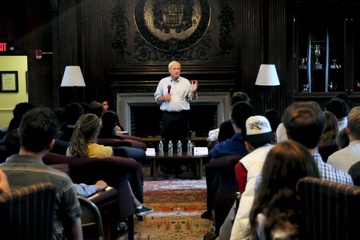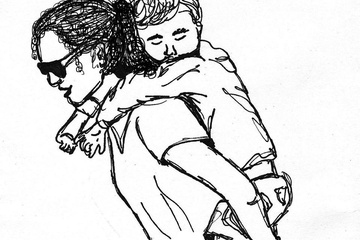His shackles clinked across the courtroom floor as he paced anxiously in front of the jury. He spoke passionately. Desperately. Loudly.
Josh Matthews was on trial for murder.
In the opening statement—he was acting as his own attorney, against the judge’s recommendation—he spoke about how his mother had hit him over the head with a soup ladle when he was in fourth grade. He told of being locked in his room for weeks at a time. He described his prolific life of crime, admitting to everything from selling crack while on probation to punching the murder victim, a 17-year-old college student, some weeks before her death.
In my time as a law clerk at the DuPage County State’s Attorney’s Office, I had seen some criminals of questionable morals. There was the financial crimes case in which the defendants allegedly committed $6 million in mortgage fraud. There was the man who let his pit bulls loose on the police when they showed up at his door. But Matthews was different. He seemed, somehow, like a man who never had a chance. Like a man who had started at the bottom and made bad choices that sunk him even lower.
This was a man who couldn’t get an honest job, who was able to justify hitting a 17-year-old girl, and who had to be tased to get him in the courtroom and restrained once he was there. Sitting in that courtroom, I remembered a conversation in the dining hall when my friends and I had debated whether or not all people had an inherent morality, a basic human compassion. If Josh Matthews was born with that morality, it had been beaten out of him by the time he confronted his childhood friend on that cold Chicago night.
When the victim’s mother took the stand, she could not prevent herself from breaking down while spelling her name for the court reporter. While Matthews cross-examined her, however, she didn’t flinch. She looked him dead in the face, a fire in her eyes unlike any I have ever seen. It was the fire of a mother who wanted the world for her daughter—who instilled a work ethic that drove her daughter to work a part-time job and take a full course load at community college the summer after her senior year of high school. It was the fire of a mother who would have given anything for her child. As Matthews squirmed under her glare, I found it impossible not to wonder: if he had once had a mother like that, would he be sitting at that defendant’s table?






